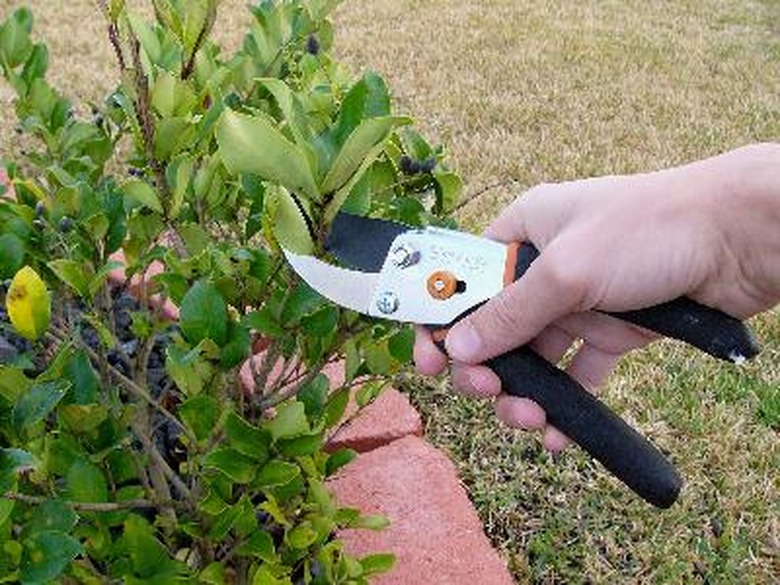Why Does Cutting Dead Parts Off Of Plants Help?
Cutting dead parts off of plants has more than one beneficial purpose. It doesn't matter if it's dead flowers, dead branches, dead roots or dead leaves; if you want the health of your plant to improve, cutting them off does the trick. As a plant grows, it goes through the process of elimination.
Cutting dead parts off of plants has more than one beneficial purpose. It doesn't matter if it's dead flowers, dead branches, dead roots or dead leaves; if you want the health of your plant to improve, cutting them off does the trick. As a plant grows, it goes through the process of elimination. As new stems, branches, leaves and flowers emerge, old ones die off. Removing the old growth allows the plant to continue growing without lost energy.
Improve Health
Cut off the dead parts to keep boring insects and decomposing organisms from attacking the healthy, living parts of the plant. As the dead parts of a plant decay, the natural decomposition process begins. Wind and ice are the natural pruners of the plant world, but if you have plants in your yard with dead parts, remove them yourself. The dead parts of wood plants my not be suitable for the compost bin, but soft, herbaceous plants decompose quickly.
- Cutting dead parts off of plants has more than one beneficial purpose.
- The dead parts of wood plants my not be suitable for the compost bin, but soft, herbaceous plants decompose quickly.
Improve Landscape Effect
A dead branch is an eyesore worth cutting down. Dead branches often indicate a natural weakness in a tree, bush or plant. Cut it and remove it to improve the aesthetics of your landscape. Dead stems, twigs, branches, leaves and flower often get caught in the forks and crotches of the plant or tree. Aside from being unsightly, these are breeding beds for decay, insects and disease. Keep these areas cleared of all dead materials.
Improve Growth and Yields
Cut away dead flowers and leaves to provide a boost to the new flower bulbs and leaf buds. When the old flowers and leaves have wilted, yellowed or turned brown, pinch them off with pruning shears or pruning loppers. The nutrients traveling to these dying areas of the plant will no longer be wasted. By allowing the much needed nourishment to flow to the other growing parts of the plant, growth spurts will occur in the leaves and potentially increase the fruited harvest. Removing these items also increase air circulation and sunlight penetration. Both of these have a significant role in high growth yields.
- A dead branch is an eyesore worth cutting down.
- Aside from being unsightly, these are breeding beds for decay, insects and disease.
Protect People and Property
Dead parts of plants allow poisonous and stinging insects places to bore and make nests. Children playing around these areas may be caught unawares by the sometimes life-threatening bite of one of these assailants. Dead branches should never be left hanging from tree, because a brisk wind can send them cascading to the ground. If a person, fence or vehicle lies beneath, the consequences can be regrettable. When caring for living plants, keep in mind that an ounce of cure is worth a pound of prevention.
